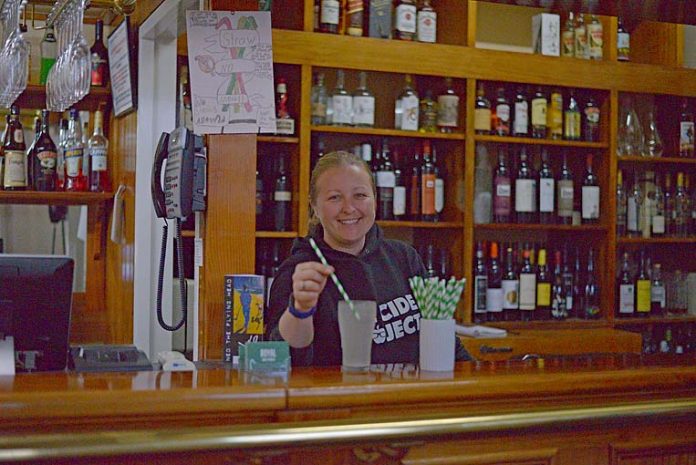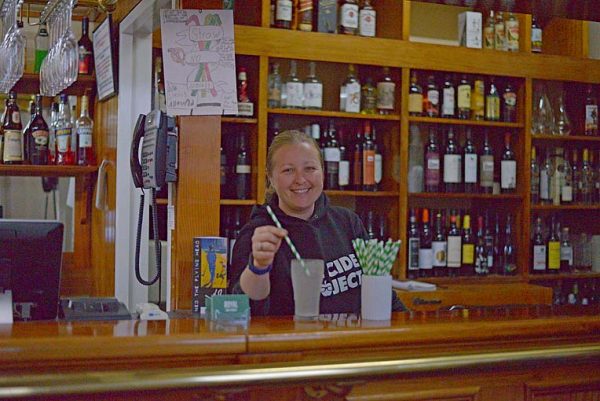

THE South Australian Government is continuing its war on waste with single-use plastics likely to be scrapped from the hospitality sector as early as 2020.
In what would be an Australian first, single-use items including plastic straws, cutlery and stirrers would be replaced by biodegradable options with the aim to maintain the state’s reputation as a leader in waste management.
The proposed ban comes after an increase in the solid waste levy, which will result in waste dumping fees increasing from $55 per tonne to $70 as of January 1.
Since taking over Heyward’s Royal Oak Hotel in Penola almost a year ago, John Rymill and his partner Mary Harvey have been at the forefront of waste management, putting a plan into action to ban the use of plastic straws in their pub from day one.
Although the pub came with “a year’s supply of plastic straws”, the couple has slowly made the transition to paper.
“We knew when we took over the hotel that we wanted to be as low-waste as possible,” Ms Harvey said.
“We had so many plastic straws that would have gone to landfill anyway, we have slowly made the change into paper over the past year.
“It is something I have always been passionate about, but when we took over it was kind of in the height of the save the turtles campaign and similar things, so it was definitely in the forefront of my mind.”
Previously living in the Kimberley region, Ms Harvey said even in such a remote location, single-use plastic was a huge problem.
Now living in the Limestone Coast, she believes our ecosystem needs to be protected just as much as any other.
“I think banning single-use plastics across the state is something that needs to be done to better our environment.”
Mr Rymill echoed Ms Harvey’s sentiments, but said there must be an alternative for business owners to transition into.
“I think it is definitely something that needs to be done as long as the hospitality industry has other alternatives,” he said.
“We need time to transition over and make sure the new paper straws, bamboo cutlery and other recyclable items are available to all.”
Mr Rymill also highlighted the cost increases of using biodegradable products compared to plastic.
“Changing over to paper straws does come at an additional cost to us, but you have to weigh up the cost it has on the environment as well,” he said.
Penola Primary School is also supporting the movement, with students taking to the Penola streets late last year to donate paper straws to cafes and pubs.
After an excursion to Caroline Landfill the students realised how much single-use plastic was being used in the community and decided to make a stand.
Environment and Water Minister David Speirs said a discussion paper released earlier this year received strong feedback from South Australians keen to see action on single-use plastics.
“It is clear from the more than 3500 submissions there is significant community and industry support for increased measures to address a range of single-use plastic products and other items,” Mr Speirs said.
“Nearly 99pc of respondents recognised the environmental problems associated with single-use plastics and nearly 97pc supported government intervention.”
Mr Speirs said draft legislation be released later this year with a view to ban plastic straws, cutlery and stirrers with takeaway polystyrene containers and cups next.
“Further consideration would be needed when looking at takeaway coffee cups, plastic bags and other takeaway food service items following consultation,” he said.
“We will release draft legislation for further public consultation with the intention to introduce it to parliament in 2020.”







